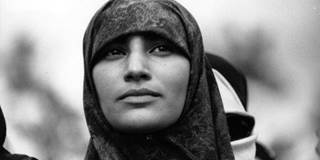In January, the Algerian novelist Kamel Daoud wrote an article about the role that sexual deprivation plays in the Muslim world. As controversial as his argument might seem, the more important debate is over whether he should have said anything at all.
PARIS – The argument began when the Algerian novelist and journalist Kamel Daoud wrote an article for the Italian newspaper La Repubblica about a spate of sexual assaults in Cologne, Germany, on New Year’s Eve, 2015. The attacks were widely reported to have been carried out by groups of immigrants from North Africa and the Middle East, which Daoud explained by saying that many Muslims from the region suffer from extreme sexual deprivation, which, he wrote, generates an “unhealthy relationship with women, their body, and desire.”
Daoud seems not to have expected the reaction his article received, especially in France, where it was republished by Le Monde. After withering criticism accusing him of Islamophobia, Daoud announced that he would cease his journalistic work and focus on writing novels. But putting Islam off limits to criticism not only deprives a voice to authors like Daoud; it perfunctorily halts a much-needed discussion.
There can be no doubt that Daoud’s decision to write the article took extraordinary courage. In 2014, shortly after the publication of his first novel, The Meursault Investigation, which retells Albert Camus’ The Stranger from the perspective of the murdered Arab’s brother, a Salafist imam declared a fatwa calling for Daoud’s death for apostasy and heresy. But that didn’t stop him from tackling a controversial subject.



PARIS – The argument began when the Algerian novelist and journalist Kamel Daoud wrote an article for the Italian newspaper La Repubblica about a spate of sexual assaults in Cologne, Germany, on New Year’s Eve, 2015. The attacks were widely reported to have been carried out by groups of immigrants from North Africa and the Middle East, which Daoud explained by saying that many Muslims from the region suffer from extreme sexual deprivation, which, he wrote, generates an “unhealthy relationship with women, their body, and desire.”
Daoud seems not to have expected the reaction his article received, especially in France, where it was republished by Le Monde. After withering criticism accusing him of Islamophobia, Daoud announced that he would cease his journalistic work and focus on writing novels. But putting Islam off limits to criticism not only deprives a voice to authors like Daoud; it perfunctorily halts a much-needed discussion.
There can be no doubt that Daoud’s decision to write the article took extraordinary courage. In 2014, shortly after the publication of his first novel, The Meursault Investigation, which retells Albert Camus’ The Stranger from the perspective of the murdered Arab’s brother, a Salafist imam declared a fatwa calling for Daoud’s death for apostasy and heresy. But that didn’t stop him from tackling a controversial subject.